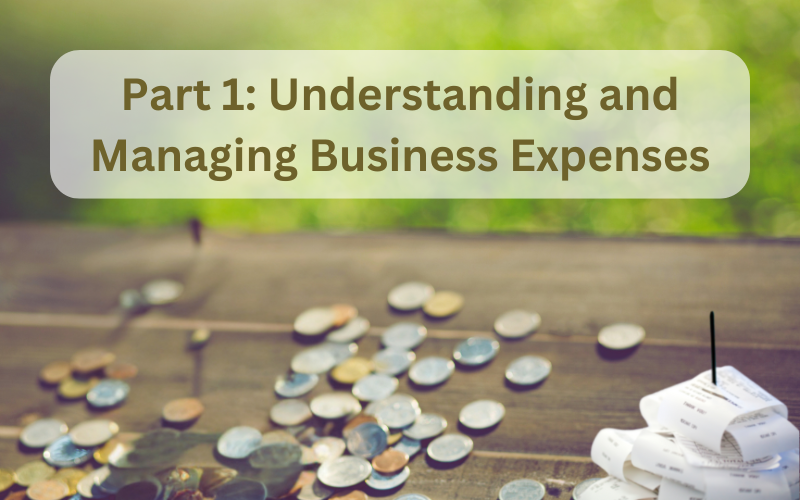
Understanding and managing business expenses (part one)
This two-part series from Accredited Supplier Sones Accountancy Services, will explore the critical aspects of business expense management for trade professionals. Whether you are a landscaper, electrician, carpenter, or provide other skilled services, understanding and managing your expenses is crucial for business success. Part one will focus on why expense management matters and common expense categories for trade businesses. In part two, we will look into how to track expenses effectively and provide practical tips for managing business expenses. By mastering these concepts, you will be better equipped to make informed decisions, improve profitability, and navigate financial challenges in your trade business.
Why tracking expenses matters
Tracking expenses is more than just keeping receipts or knowing what’s in your bank account. It provides insights into where your money is going, and this will help you to:
- Identify cost-saving opportunities - by understanding your spending patterns, you can identify areas where you might be overspending and look for ways to cut costs
- Improve cash flow management - cash flow is the lifeblood of any business. Proper expense tracking ensures you know your incoming and outgoing funds, allowing you to manage your cash flow more effectively
- Accurate financial reporting - keeping your expenses well organised ensures that your financial reports are accurate, making tax time less stressful and compliance easier
- Better budgeting and forecasting - when you track your expenses, you can set realistic budgets and forecasts, providing a clear financial roadmap for your business
Common expense categories for trade businesses
To effectively manage expenses, it is essential to categorise them correctly. Here are some common categories relevant to trade businesses:
- Direct costs - these are costs directly related to the services you provide, such as materials, tools, and subcontractor fees
- Labour costs - wages paid to employees, including any overtime, benefits, and related payroll taxes
- Vehicle expenses - costs associated with running your work vehicles, including fuel, maintenance, insurance, and depreciation
- Office supplies and equipment - expenses for office supplies, computers, phones, and other equipment necessary for the administration of your business
- Rent and utilities - rent for office or workshop space, utilities such as electricity and water, and any other facility-related costs
- Marketing and advertising - spending on marketing your business, including online ads, website costs, business cards, and other promotional materials
- Professional fees - costs for services such as accounting, legal advice, and software subscriptions that help keep your business running smoothly
- Training and development - expenses for courses, certifications, and other training that enhance your skills or those of your team
- Miscellaneous expenses - this category captures any other business expenses that do not fit neatly into the above categories
In conclusion, understanding and managing your business expenses is crucial for the long-term success of your trade business. By understanding your expenses, you gain valuable insights that allow you to make informed decisions, improve profitability, and ensure your business runs smoothly. Remember, the key to successful expense management is consistency. Regularly review your finances, adjust where necessary, and always keep an eye on your cash flow. With the right tools and strategies, you will have a clear picture of your financial health and be well-positioned for growth.
For personalised advice on managing your business expenses, speak with an accountant or bookkeeper who can provide tailored guidance that aligns with your specific business needs.
